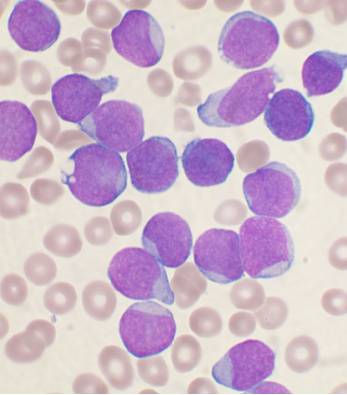 There’s a big push in the UK to make ‘early diagnosis’ of cancer happen more often. The assumption is that diagnosis earlier will mean the disease has not spread, is more treatable, and will lead to a better outcome.
There’s a big push in the UK to make ‘early diagnosis’ of cancer happen more often. The assumption is that diagnosis earlier will mean the disease has not spread, is more treatable, and will lead to a better outcome.
For many conditions, the stage at presentation does indeed link to outcome. In some conditions, there’s a clear natural history that allows you to ‘catch it early’ (cervical neoplasia for example). In others, the biology doesn’t work like that, and early doesn’t mean anything (take the example of neuroblastoma screening).
But what about acute leukaemia?
An acute leukaemia can be a rapidly fatal disease – which may be one of the reasons why some developing countries seem to have less leukaemia than they should – so it stands to reason that folk with acute lymphoblastic leukaemia who are misdiagnosed with something else may have a worse outcome. In this paper from Sweden, the outcomes of children who had ALL and presented with arthritic symptoms without barn-door leukaemia (88% of those with clinical arthritis) were compared to those of children who presented with different symptoms. They showed that the ‘misdiagnosed’ group took longer to get to treatment (17 days longer) – but that their survival outcomes were marginally better than the non-arthritic group (96% vs 83%).
Why this matters is, I think, clear. We need to be able to focus our ‘awareness’ campaigns where they will make a difference and we need to be able to answer the families who ask ‘would it have made a difference ..’ honestly. Such work, taking the obvious and seeing if it’s true – is vital in all of medicine
– Bob Phillips